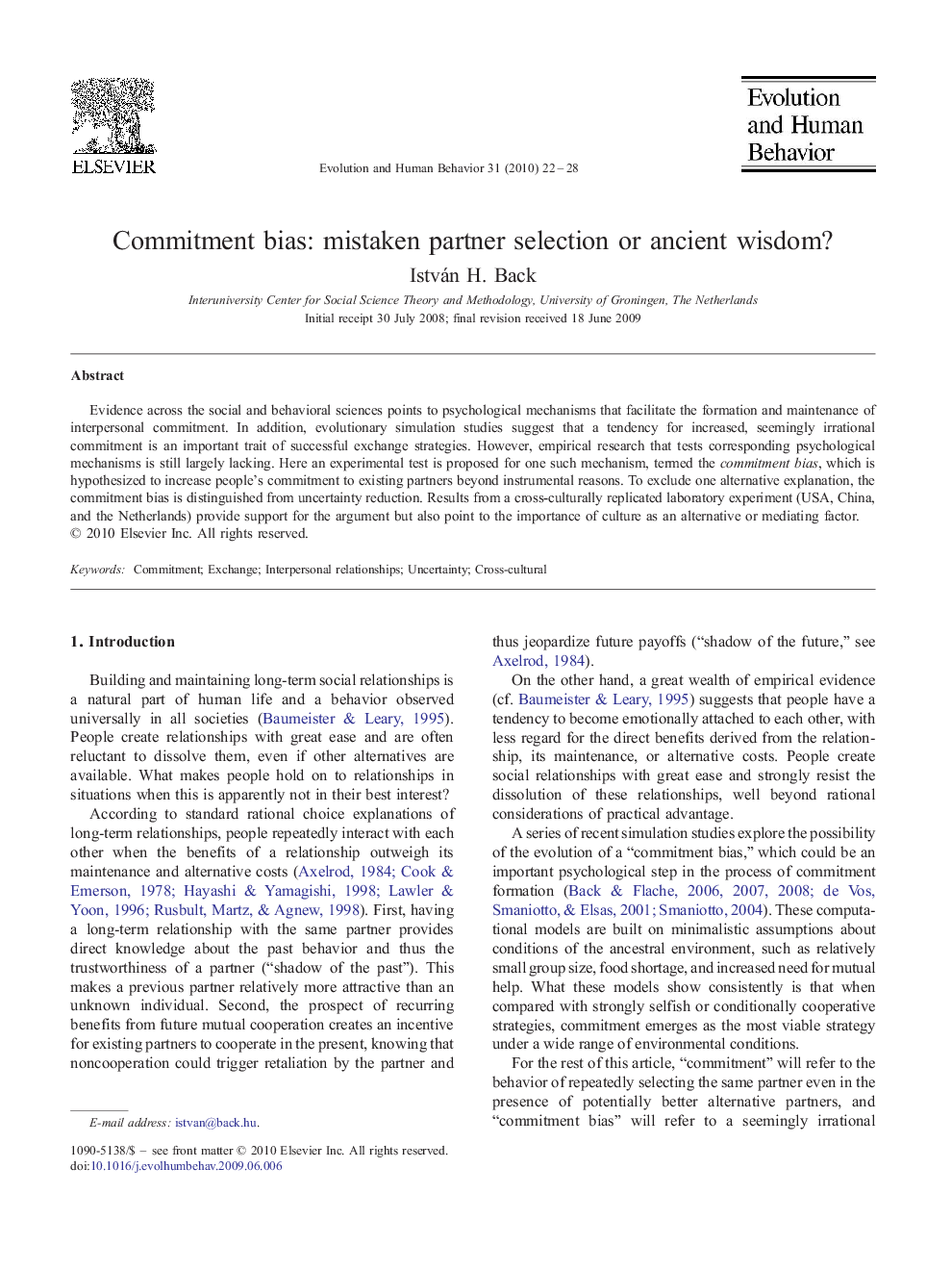| Article ID | Journal | Published Year | Pages | File Type |
|---|---|---|---|---|
| 943323 | Evolution and Human Behavior | 2010 | 7 Pages |
Evidence across the social and behavioral sciences points to psychological mechanisms that facilitate the formation and maintenance of interpersonal commitment. In addition, evolutionary simulation studies suggest that a tendency for increased, seemingly irrational commitment is an important trait of successful exchange strategies. However, empirical research that tests corresponding psychological mechanisms is still largely lacking. Here an experimental test is proposed for one such mechanism, termed the commitment bias, which is hypothesized to increase people's commitment to existing partners beyond instrumental reasons. To exclude one alternative explanation, the commitment bias is distinguished from uncertainty reduction. Results from a cross-culturally replicated laboratory experiment (USA, China, and the Netherlands) provide support for the argument but also point to the importance of culture as an alternative or mediating factor.
